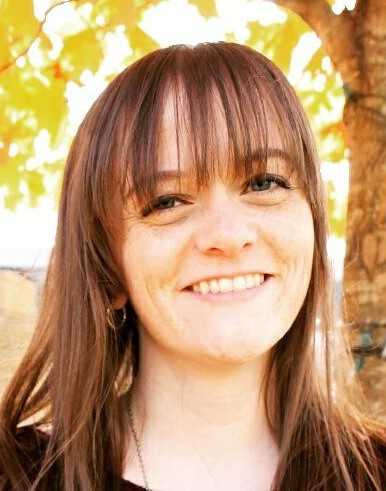Space Traveler by Benjamin S. Grossberg. Tampa: University of Tampa Press, 2014. 130 pages. $14, paper.
Space Traveler, Benjamin S. Grossberg’s third full-length poetry collection, revolves around the journey of the stoic and perceptive Space Traveler. The book is split into six sections, each poem a tightly compacted rocket ship filled with the delightful energy of the speaker’s articulate psyche; each poem fires up quickly and takes off with clever precision.
Space Traveler is a knockout for Grossberg, who has busted out of his shell into a mature, outgoing poet-thinker. His previous two collections represented a poet very much entrenched in the Earth: water, soil, vegetation, but also mindfulness; he courageously put himself into his work through philosophical and classical dilemmas of the mind, heart-wrenching frustration of sexual and familial relationships, and even humor. In this collection, Grossberg reworks those strengths into poems that execute skillful ironic tension: a speaker who is estranged from the human world but turns out to be intensely human himself. Grossberg plays with a new kind of ecosystem that is both abstract and concrete, and he pulls it off wonderfully.
A fundamental strength of Space Traveler is the use of plainspoken language, which serves as the engine for many of the poems. Casual voice is a new element in Grossberg’s work; it punches up this collection significantly. What works particularly well is the way in which several poems begin with a conversational burst. Here are some first lines: “No hoax. They just didn’t / hang around very long …,” or “It was me. An accident,” or “I’m not laughing at you. Really.” However, the true genius of this plainspoken style occurs when the Space Traveler speaks to the reader like a friend over a cup of coffee and then cleverly slips in thoughtful musings. The best example happens in “The Oil Spill,” when the Space Traveler says,
It’s all right. My species ruined
our planet, too. Chewed it, gouged it,
stewed it in any of a dozen flavors
of port, then ate it on toast. When all
was said and done, damn near
a billion of us stood back to back
on a tiny island, surrounded
by floating towers of plastic—
skyline of blues, greens, yellows, reds
bleaching in sunlight, and squadrons
of tern-like creatures circling above us,
squawks deafening. …
This passage excels in conversation, music and precise image. The engaging banter in the first two lines works stunningly, but the phrase “damn near” is achingly perfect. Conversational tone is everything here, employed ironically to talk about the environmental destruction of a planet. Further down, the Space Traveler elaborates: “You do your best to halt the black / hemorrhage, pinching your side / between thumb and forefinger. Good luck.” Again, the tone is spot-on, well timed, and humorous, as it is all throughout Space Traveler.
Perspective is another great element of Space Traveler. Poem titles are repeated throughout the collection, which creates the feeling of multiple realities. “Home,” “Wandering,” “Earth,” “His Husband,” “He Pities Humans,” “Black Holes,” “The Promised Planet,” and “Heaven” are all repeated titles; this is a smart move on Grossberg’s part because the twin poems create extra layers of meaning. For example, in “Wandering,” the reader experiences two perspectives on how the Space Traveler views his departure from Earth. In the first “Wandering,” the last lines of the poem employ relief and humor laced with pain:
When my afterburn ignited
what was left of the place, I
allowed myself a small smile. Then
I set the toaster for deep
space. It didn’t ding for years.
However, in the second version of “Wandering,” the tone changes:
… There was
a field that was my home, a world
I understood in the long silences
of its dawns. Now there’s this:
stars thick and old as fire. In all
their history, none have cracked
open, no golden thread of roots
unwinding beneath them.
The Space Traveler cannot dissect this new system; he spends the rest of the book attempting to articulate that challenge through an endless series of perspectives.
Later in the book, other space travelers appear. The reader discovers how the Space Traveler views himself in relation to them. In the poem “Meaning,” the Space Traveler grapples with the difficulty of self-perspective:
In the distance, space travelers
lounge on deck chairs and sip
fruity drinks through long straws.
They’re not even sweating.
They either know more than I do
or have found more pleasant ways
to know the same things.
But then I realize it’s also possible
they look at me through their own
gritted-up fishbowls, imagining
a little Acapulco where cabana
boys fan me, bring me ice
shavings sticky with peach juice.
One of Grossberg’s strengths as a poet is his willingness to acknowledge and inhabit emotional and physical vulnerability. In this passage, other travelers are included in this conversation, turning vulnerability into a universal feeling.
Space Traveler thrives on emotional and philosophical depth, but it is also an empowering book. Venturing into the unknown can be frightening and isolating, but also highly gratifying. An empowered voice shines through in “Earth,” “The Promised Planet,” and “His Duende” (which also cleverly flirts with the idea of annihilation), but the desire for autonomy is the strongest in “Runaway Stars,” where the Space Traveler remarks,
A space traveler’s dream? To hitch
a ride on one of those stars: to clutch
chaps-clad legs around its pulsing heat,
hold on with one hand while the other
reaches up toward the coolness. How they
buck and flare in their disentangled fury,
how they charge off suddenly and terribly
alone. That’s the dream: not to be
the one burned, the dolt in its path, but
the mount, to ride the swelling fire.
The language is sexually charged and maverick-like, but ultimately, empowerment is the dream: life as an uninhibited journey full of imagination, courage, and adventure.
Space Traveler is an impressive breakthrough collection for Benjamin S. Grossberg. He trusts his natural voice, and he exhibits just the right combination of wit, intellectual depth and emotional complexity to keep the reader entertained and engaged.
—Andrea Syzdek, University of Houston






